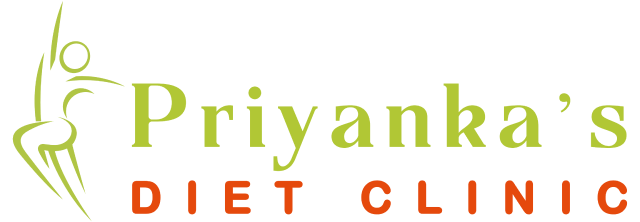Nutrition In Cancer Care – Cancer is a complex and challenging disease that not only affects the cells of the body but also has a profound impact on overall health and well-being. The role of nutrition in cancer care is increasingly recognized as an essential component of comprehensive treatment plans. Proper nutrition can play a crucial role in supporting patients through their cancer journey, from diagnosis to treatment and recovery. If you are searching Nutrition In Cancer Care then this blog provides you the complete information so stay with us.

What is the Importance of Nutrition in Cancer Care?
Nutrition plays a pivotal role in cancer care, influencing the overall health and well-being of individuals diagnosed with this complex disease. Recognizing the importance of nutrition in cancer care is essential for improving treatment outcomes, managing side effects, and enhancing the quality of life for patients. This article explores the key reasons why nutrition is a crucial aspect of cancer care.
#1. Nutrient Requirements
Cancer and its treatments can increase the body’s nutrient requirements. Patients may experience increased energy needs, protein requirements, and specific nutrient deficiencies due to factors such as reduced appetite, altered metabolism, and treatment side effects.
#2. Supporting Treatment Efficacy
Cancer treatments such as chemotherapy, radiation, and surgery can place significant demands on the body, affecting energy levels, metabolism, and immune function. Adequate nutrition provides the essential nutrients required for the body to withstand the rigors of treatment, supporting the effectiveness of therapies and promoting a faster recovery.
#3. Maintaining Weight and Muscle Mass
Cancer patients often experience unintended weight loss, which can compromise their overall health and diminish the body’s ability to tolerate treatment. Conversely, obesity is associated with poorer treatment outcomes in certain cancers. Proper nutrition helps patients maintain a healthy weight and preserve muscle mass, contributing to better treatment tolerance and overall well-being.
#4. Addressing Treatment Side Effects
Many cancer treatments come with side effects that impact appetite, taste perception, and gastrointestinal function. Nausea, vomiting, and changes in taste can make it challenging for patients to maintain a nutritious diet. Tailoring nutrition plans to address these specific challenges, such as incorporating easily digestible foods or adjusting textures, can alleviate treatment-related side effects.
#5. Boosting Immune Function
Cancer and its treatments can weaken the immune system, making patients more susceptible to infections. Proper nutrition, rich in immune-boosting nutrients like vitamins and minerals, helps strengthen the body’s defenses, supporting the immune system in its role of fighting off illness and aiding in the recovery process.
#6. Preventing Malnutrition
Malnutrition is a common concern in cancer patients, driven by factors such as reduced appetite, changes in metabolism, and treatment-related side effects. Adequate nutrition helps prevent malnutrition, ensuring that the body receives the necessary nutrients for cellular repair, maintenance, and optimal functioning.
#7. Enhancing Quality of Life
A well-balanced and nourishing diet contributes to an improved quality of life for cancer patients. Proper nutrition can alleviate fatigue, enhance mood, and provide the energy needed to engage in daily activities. It also contributes to a sense of normalcy and control during a challenging time.
The Following are Some Nutritional Strategies for Cancer Patients
- Individualized Meal Plans – Each patient’s nutritional needs are unique. Tailoring meal plans to individual preferences, dietary restrictions, and treatment-related side effects can enhance adherence to dietary recommendations.
- Emphasis on Protein Intake – Adequate protein is crucial for maintaining muscle mass, supporting immune function, and promoting tissue repair. Protein-rich foods such as lean meats, dairy, beans, and nuts should be prioritized.
- Hydration – Staying hydrated is essential, especially during cancer treatment. Proper fluid intake helps manage side effects like nausea, vomiting, and diarrhea and supports the body’s natural detoxification processes.
- Managing Side Effects – Cancer treatments often come with side effects such as nausea, taste changes, and difficulty swallowing. Modifying the diet by incorporating softer foods, avoiding strong odors, and experimenting with different textures can help alleviate these issues.
- Supplementation when Necessary – Some cancer patients may require nutritional supplements to meet their specific needs. These supplements may include vitamins, minerals, or specialized nutritional products. However, supplementation should be done under the guidance of healthcare professionals.
What Foods Should Eat During Nutrition Cancer Care?
Nutrition plays a vital role in cancer care, helping to support overall health, treatment efficacy, and quality of life. While individual dietary recommendations may vary based on factors such as cancer type, treatment plan, and personal preferences, the following general guidelines can serve as a foundation for a well-balanced and nourishing diet during cancer care:
Fruits and Vegetables
- Colorful Varieties: Choose a variety of fruits and vegetables in different colors to ensure a broad range of vitamins, minerals, and antioxidants.
- Leafy Greens: Include dark, leafy greens like spinach, kale, and Swiss chard, which are rich in nutrients and fiber.
Whole Grains
- Whole Wheat, Brown Rice, Quinoa: Opt for whole grains over refined grains for added fiber, vitamins, and minerals.
Lean Proteins
- Poultry, Fish, Lean Meats: Include lean sources of protein to support muscle mass and overall health.
- Plant-Based Proteins: Incorporate plant-based protein sources like beans, lentils, tofu, and nuts.
Dairy or Dairy Alternatives
- Low-Fat Dairy: Choose low-fat or fat-free dairy products for a source of calcium and vitamin D.
- Plant-Based Alternatives: Consider plant-based alternatives like almond milk, soy milk, or fortified oat milk.
Healthy Fats
- Avocado, Nuts, Seeds: Include sources of healthy fats for energy and nutrient absorption.
- Olive Oil: Use olive oil for cooking or as a dressing for salads.
Hydration
- Water: Stay well-hydrated with water, herbal teas, and clear broths. Adequate hydration is crucial, especially during cancer treatment.
Small, Frequent Meals
- Smaller Portions: Opt for smaller, more frequent meals to manage appetite and prevent overeating.
- Snacks: Choose nutritious snacks like fresh fruit, yogurt, or whole-grain crackers with hummus.
Limit Processed Foods and Sugars
- Minimize Processed Foods: Reduce the intake of processed foods, as they may contain additives and preservatives.
- Limit Added Sugars: Be mindful of added sugars in beverages, desserts, and processed snacks.
Consult with Healthcare Professionals
- Nutritional Guidance: Work with a registered dietitian or healthcare team to receive personalized nutritional guidance.
- Supplementation: Consider nutritional supplements under the guidance of healthcare professionals, especially if specific nutrient needs are challenging to meet through diet alone.
It’s crucial for individuals undergoing cancer treatment to consult with their healthcare team, including a registered dietitian, to create a nutrition plan tailored to their unique needs and circumstances. Additionally, addressing individual preferences, managing side effects, and adapting the diet as needed throughout the cancer journey are essential components of effective nutritional support.
Conclusion
In the above article, we give you the complete information related to Best Nutrition In Cancer Care. In the realm of cancer care, nutrition is a critical component that can positively influence treatment outcomes and quality of life. If you are looking for the best dietitian who provides you with a meal plan then must contact Dietitian Priyanka. She has years of experience and they provide several services online and offline treating various diseases and focusing on enhancing the overall health and resilience of the individual.






